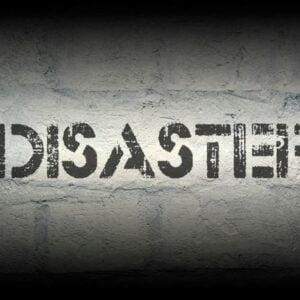Gridworks, a UK government-backed developer of electricity networks in Africa, has secured a $5 million grant from the U.S. International Development Finance Corporation (DFC) to support critical development work on the Chimuara–Nacala transmission project in Mozambique. This funding will cover technical, legal, and environmental studies necessary to bring the project to financial close, moving it closer to becoming Mozambique’s first privately financed independent transmission line.
The DFC grant is intended to de-risk the early stages of the project by funding essential groundwork, which is expected to increase investor confidence and help unlock hundreds of millions of dollars in construction finance. This support is significant given that even a relatively small grant at this stage can have a major impact on the project’s progress.
The Chimuara–Nacala transmission project aims to strengthen electricity supply between central and northern Mozambique, improve grid stability and reliability, facilitate the integration of more renewable energy sources, stimulate industrial growth in the northern region, and advance Mozambique’s goal of universal energy access.
The project involves creating a high-voltage transmission corridor connecting Chimuara in the central region to the northern port city of Nacala, spanning approximately 460 kilometers of infrastructure. It includes multiple high-voltage lines and new substations, built in three phases. Phase I is underway by Mozambique’s state utility Electricidade de Moçambique (EDM), while Phases II and III—the focus of this grant—are being developed in partnership with Gridworks.
Gridworks, wholly owned by British International Investment (BII), is leading the private-sector side of the project through its local entity GW Mozambique Investments LLP, working directly with EDM. The DFC grant will fund environmental and social impact assessments, detailed engineering designs, legal and regulatory compliance, as well as procurement preparations and tendering processes. Parallel development funding is being provided by the International Finance Corporation (IFC), with a focus on meeting international environmental and social standards.
The total estimated cost of the Chimuara–Nacala project is about $400 million, making it one of Mozambique’s largest planned grid investments. Beyond technical infrastructure, the project is expected to deliver significant economic and social benefits, including expanding energy access to a population where roughly 40% currently lack electricity, fostering industrial growth in the north, and enabling greater integration of renewable energy sources such as solar, wind, and hydro into the national grid.
Transmission projects like this require extensive preparatory work before construction can begin, including land surveys, environmental and social assessments, community engagement, legal agreements, detailed designs, and procurement planning. The DFC grant will cover these crucial early stages, mitigating risks that could otherwise delay the project, increase costs, or prevent securing construction financing.
DFC’s involvement signals strong U.S. government support for private infrastructure investment in Africa, which can encourage additional financing from other development finance institutions and commercial banks. The next steps for the project include completing all assessments, finalizing regulatory and concession agreements, preparing detailed engineering and procurement documents, conducting competitive tenders, and securing final financing. If successful, financial close could be achieved within two years, followed by a multi-year construction phase.
The project faces challenges common to large African infrastructure developments, such as land acquisition and resettlement issues, environmental concerns especially in sensitive areas, regulatory clarity on tariffs and private participation, political and security risks in northern provinces, and the need for effective community engagement to maintain social license. The involvement of IFC and DFC indicates these challenges are being managed with rigorous compliance and stakeholder consultation.
If successful, the Chimuara–Nacala project could serve as a model for privately financed transmission infrastructure in Sub-Saharan Africa, demonstrating that private capital can be mobilized for grid backbone projects with proper risk mitigation. Additionally, the enhanced transmission capacity aligns with regional integration objectives, potentially enabling Mozambique to export electricity through the Southern African Power Pool, benefiting neighboring countries.







